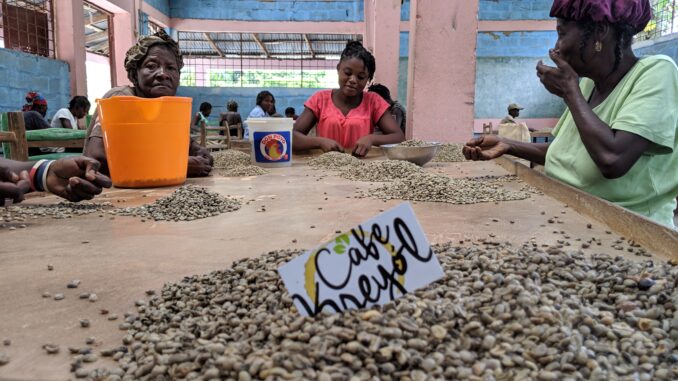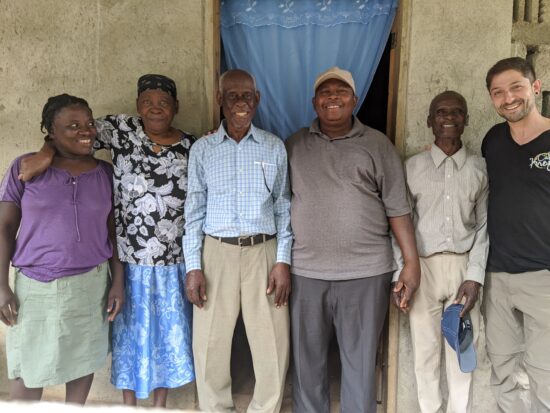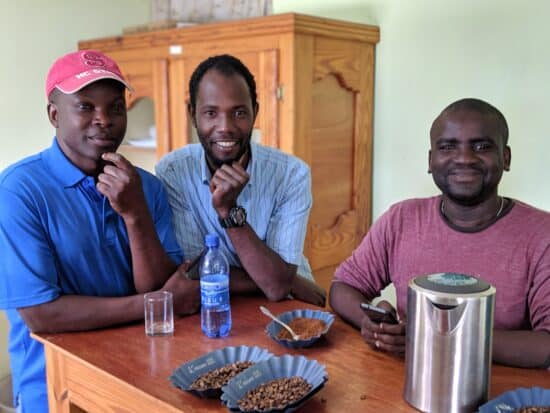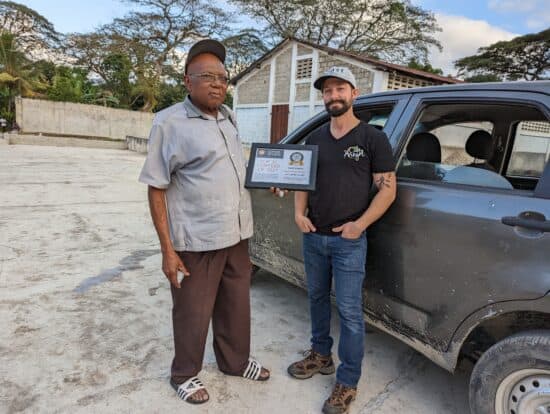
Café Kreyol is a Haitian-focused coffee business creating jobs for specialty-coffee farming.
BY KATRINA YENTCH
BARISTA MAGAZINE ONLINE
Photos courtesy of Café Kreyol
When Café Kreyol founder Joseph Stazzone discovered the mountainous regions of Haiti, he knew there was potential for the country to be a strong contender in the modern coffee scene. At the time, he had just returned from a mission trip to Haiti in 2012, where he experienced firsthand how ineffective donation and aid could be.
“I came back here and quickly put my thoughts together on this,“ Joseph explains, “that there’s a time for aid, especially right after an earthquake or a tsunami and such. But there’s not really a time for the same type of aid five years later. If you’re still importing that food, what’s happening to all the people that were growing food before?“

Meet Café Kreyol
Joseph thus started Café Kreyol to bring jobs to Haitians through specialty coffee. The business is a green- and roasted-coffee operation, working directly with producers at origin to grow and improve high-quality green coffee. Although Café Kreyol now operates in several countries, its foundation and focus remains on Haiti.
Entering the Coffee Landscape
When Joseph first launched Café Kreyol, he knew nothing about coffee. He knew that he liked it, and that there was already a presence of growing regions in the country. In addition to this, some helpful groundwork had already been laid by a nonprofit social enterprise called Singing Rooster.
Unfortunately, however, much of the scene was dominated by wealthy companies in Haiti’s capital, Port au Prince, and coffee prices fluctuated whenever the occasional exporter would come around. Therefore, there was not much incentive by Haitians to grow coffee—especially high-quality coffee.
Upon further research, he discovered that in the 1700s, Haiti was responsible for 85% of the world’s coffee supply. “That history and the fact that they had been growing coffee for so long made me decide that this was what we’re gonna do,“ Joseph explains.
Café Kreyol Focuses on Quality
He chose to focus on high-quality coffee in particular for the value it could bring to farmers. “There’s an internal demand for coffee in Haiti, and the prices are not going to be competitive in an international market for anything that is commercial quality,“ he says. “So because of low supply and demand existing, the commercial coffee thing just wouldn’t work out. Our goal would be to get higher-end to get the specialty crowd because that’s who would be willing to pay the price that would make it worth it for farmers to grow.“
His first purchase of coffee was a lot of 200 pounds that scored less than 80 points.

Expanding and Diversifying the Business
When Café Kreyol first formed, Joseph spent time between origin trips to Haiti traveling in other coffee-producing countries to learn about coffee harvest and processing. Along the way, he completed his Q Grader certification soon after. Over time, as he came to learn more about coffee processing, he expanded the business to the Dominican Republic. Today, Café Kreyol regularly works on the ground in seven countries, and has partnered with over 12 nations since its founding. “We realized that we could use our dollars to try to make positive impact wherever we go,“ he explains. When choosing new opportunities, he decides, “Is there synergy where we could better connect through coffee and help the world? We select our partners that way generally.“
Café Kreyol Today
Café Kreyol now works with a variety of great coffees; many of them regularly score over 80 points on the Coffee Review scale, including a 92-point Haitian Blue variety. They get customers from all over the world, who purchase both green and roasted options—and a lot of the time, they don’t even realize it’s Haitian-grown coffee.
“They’re not doing it because they feel bad,“ Joseph says. “If you look at our bags, there’s no pictures of farmers on it. Most of them don’t even say Haiti, they say things like Zombie Blue, Caribbean Blue, Haitian Hound. You’d have to read the bags to know it’s from Haiti, or you click on our ’Meet the Farmer’ tag in the corner. People are buying it for $16 a bag at Whole Foods because they like it.”
Café Kreyol, which recently celebrated its 10-year anniversary, now works with over 2,800 people in Haiti, which is bringing money back into the local economy. “Increasing GDP is how you start to get out of poverty,“ Joseph explains, “not sending them things like rice and chicken and peanuts.“

You can check out Café Kreyol’s offerings here, and also opt into their coffee tree donation program here.

